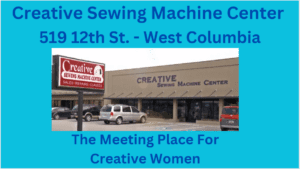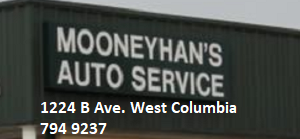
EDITORIAL: Cost of COVID-19 has been enormous say Joe Taylor and Peter Brown

This editorial by Joe Taylor Jr. and Peter Brown first ran in The State newspaper, on May 1. It is republished on WestMetroNews.com with permission.
When the coronavirus hit, the state of South Carolina and the city of Columbia shut down businesses and encouraged citizens to stay in their homes; their reasoning was that the correct response to an unknown pandemic was to use extreme caution and take extreme measures to prevent its spread.
Almost immediately Gov. Henry McMaster closed restaurants, forcing thousands of South Carolinians to file for unemployment. In Columbia the city ordered citizens to shelter in place and closed a host of other small businesses, further increasing the economic impact.
It is true that the shutdown has likely has been effective in limiting the spread of COVID-19 — but the cost has been enormous.
Business has suffered, and many of the businesses that are now closed may never reopen. Already we have lost iconic businesses like Yesterdays in Five Points, which is the cultural equivalent of New York City losing the famed Katz Deli. And more businesses will certainly follow in closing their doors.
But we know more now about COVID-19 than we did in March, and it’s time to start acting on the known instead of reacting to the unknown.
We know that while the number of virus-related cases and deaths are tragic, they have all fallen below the projections made by the state Department of Health and Environmental Control. And we know that the businesses that have remained open have not become hotspots of outbreaks, which means social distancing and safety precautions — such as using hand sanitizer and masks — are working.
So while we know that data is important to guide decision-making, we also know that some of the decisions being made by leaders haven’t been driven by data at all.
It’s time to change that.
The private sector has always led innovation, not the government. And it’s time to let that happen again.
For example, professional sports leagues like the National Basketball Association and Major League Baseball suspended their seasons long before colleges and high schools did so. And they are also leading the way on when and how to resume operations; colleges and public schools, meanwhile, have no such consensus and may possibly have no sports at all this fall.
Now private businesses are ready to lead again with the conscientious reopening of business and the economy.
Already we see signature restaurants like Blue Marlin proactively testing all its employees at its own expense to ensure a COVID-19-free environment. Why? Because businesses know that to be successful, they have to be safe.
And while the recent rounds of county and city grants may have been helpful, they aren’t enough: giving a couple hundred businesses a couple thousand dollars may buy votes, but it won’t keep many businesses that are on the edge of collapse from closing. The only way to keep them in business is to let them open for business.
The private sector is prepared to act responsibly, promptly and compassionately. It’s time to trust businesses to scale back into operation slowly, and to trust citizens to know when to visit and when not to do so.
Before COVID-19 hit, the city of Columbia’s reputation for not being business-friendly was well-established. And the city has not overcome that sense of distrust during the pandemic, thanks to its lack of a formal reopening plan for businesses and its failure to even solicit thoughtful solutions from private sector executives.
We know we will reopen. We know we will get back to life. And while we know we will never go back to normal, we also know that a “new normal” will emerge — and that we will succeed.
To get there responsibly and successfully, we need action now to lift the shutdown in a manner that trusts our common wisdom and protects our common interests.
We need to let businesses decide if they want to open, not the government. And we need to let consumers decide if they want to go to a restaurant, not a mayor.
In short we need leadership, not politics.
Joe Taylor Jr. is a Columbia native who served as South Carolina’s commerce secretary from 2005 to 2011. As the head of State Street Development, he is involved in several building projects in West Columbia
Peter Brown is a Columbia native who served as chairman of the SC Jobs-Economic Development Authority from 2005 to 2013. He is currently the president of Colite, a global full-service sign manufacturer based in Columbia.







